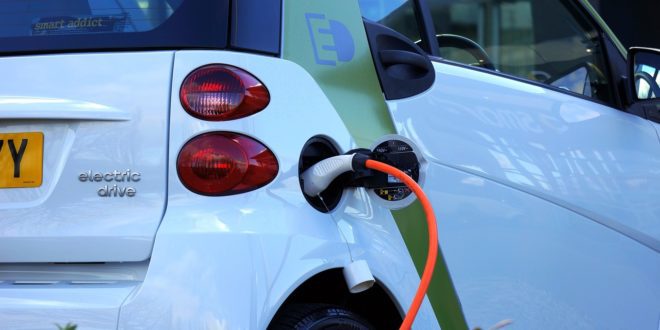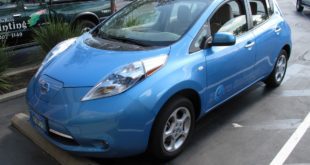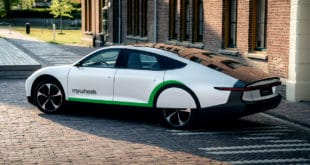Electric cars are becoming more popular each year. This is especially true as gas prices continue to rise and governments offer more incentives for people to switch to more environmentally conscious means of transportation. However, while electric cars aren’t a fresh concept like they were several years ago, does that mean that electric cars are now becoming more affordable?
In this article, we will explore this question and various considerations when weighing the pros and cons of changing economic conditions.
How Does the Cost of Electric Vehicles Compare with Conventional Ones?
Buying a new car is exciting. However, there are a lot of factors to consider when making a new car purchase, and with electric vehicles (EVs) becoming more popular each year, the choice is only getting harder.
When deciding on whether to purchase an electric vehicle or a conventional one, most people will quickly realize a sizeable difference in asking prices for the former. There are several reasons for this, but the most significant factor is that electric car batteries tend to be more costly to make. Additionally, electric vehicles have considerably fewer moving parts than conventional combustion engines, meaning that they typically have much less maintenance or repair needs on a year-over-year basis.
As technology improves and the market for electric vehicles expands, the cost differential between conventional and electric cars will likely shrink. However, even after considering these factors, there’s still a noticeable difference in sticker prices between the two types of vehicles. But, upfront spending should be only one of the considerations people make when looking at long-term affordability.
Battery Charging Costs vs. Modern Gas Prices
Electricity rates across the United States vary significantly, with some states having prices as low as $0.12/kWh and others as high as $0.30/kWh.
Assuming you’re charging your electric car battery at home (which is where most people will), your cost for electricity to fully charge your car’s battery can range from $0.30 to nearly $1.00 per gallon of gasoline saved. This means that when comparing EV charging costs against gas prices in states with relatively cheap electricity, electric cars are already considerably more affordable when calculating annual operating costs. However, in states where electricity costs are on the rise, this equation can start to shift in favor of gas-powered cars.
It’s essential to keep in mind that the price of gasoline is not static and will continue to rise in the future. The cost of charging your electric car’s battery, on the other hand, is relatively stable and shouldn’t change much (if at all) in the coming years.
Weighing the Benefits of Government Incentive Programs
Governments at all levels offer a variety of incentives to encourage people to switch to electric cars. These can include tax breaks, cash rebates, carpool lane access, and more.
The total value of government incentives can be significant. In California, for example, the state offers a $2500 rebate for buyers of new electric vehicles and an additional $1000 for plug-in hybrid owners. The federal government also provides a tax credit worth up to $7500 to purchase qualifying electric cars.
These incentive programs are essential in making electric cars more affordable because they reduce buyers’ initial cost to pay out-of-pocket when purchasing a vehicle. With the increasing popularity of electric vehicles, these types of programs will likely become more common.
The Trade-In Value of Electric Cars vs. Conventional Ones
When it comes time to trade in your old car for a new one, the value of electric vehicles usually lags behind that of conventional gasoline vehicles. This is primarily because electric cars are still relatively new, and not many people are yet ready to make the switch.
This means that, when selling your old car, you’re likely to get a lower price for it if it’s an electric vehicle than if it’s a gasoline-powered one. However, the good news is that this trend is slowly changing as electric cars become more popular.
Many safety perks come with purchasing an electric car. This also helps to improve the trade-in value of the vehicle. Some of these safety features can include:
- Adaptive cruise control (ACC)
- Lane Change Assist
- Blind Spot Monitoring
- Foward-Collision Alerts
- Rear Automatic Emergency Braking
As electric vehicles become more popular, their affordability will likely improve. This is due to various factors, including rising gas prices, government incentives, and falling battery costs.
So overall, while the upfront cost of purchasing an electric car can be more than that of a gasoline-powered car, the long-term affordability of electric vehicles is becoming increasingly competitive. Government incentives, lower operating costs, and increasing trade-in values all point to this trend continuing.
Considering Savings During Tax Season
When you file your taxes, you’re allowed to subtract certain expenses from your taxable income. This can include a wide variety of things such as mortgage interest, charitable donations, and medical expenses.
One frequently overlooked tax deduction is the cost of driving to work. This includes both the cost of gasoline and vehicle maintenance.
If you switch to an electric car, you can deduct all your charging costs from your taxable income. This could result in significant savings, especially if you live in a state with high electricity rates.
In Summary
Electric cars are becoming more affordable every day. This is due to various factors, including increased gas prices, government incentives, and the trade-in value of electric vehicles. When you add in the potential tax savings, it becomes clearer that electric vehicles are a wise investment for the future.
If you’re considering making the switch to electric, now may very well be the time to invest.
 Alternative Energy HQ solar power for homes, wind energy, and bio fuel issues
Alternative Energy HQ solar power for homes, wind energy, and bio fuel issues








